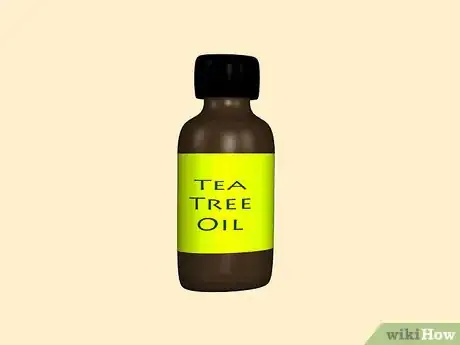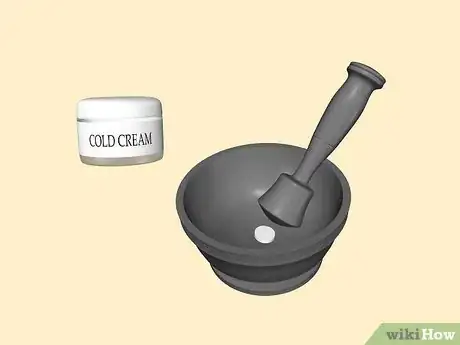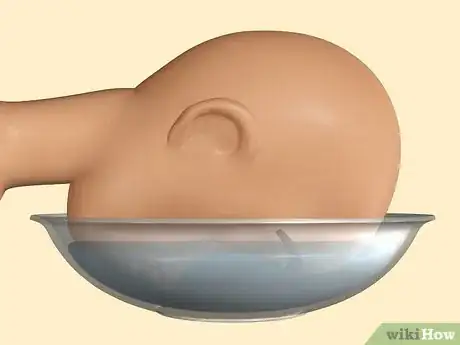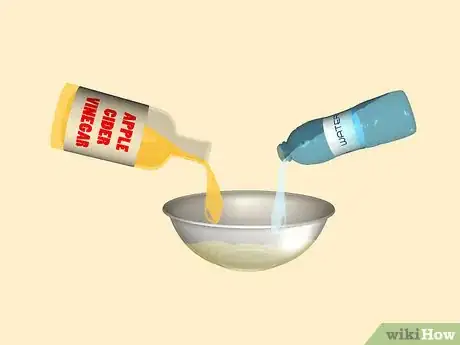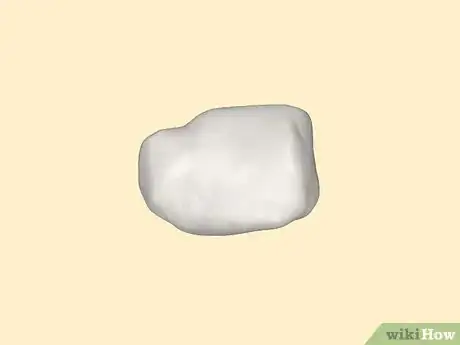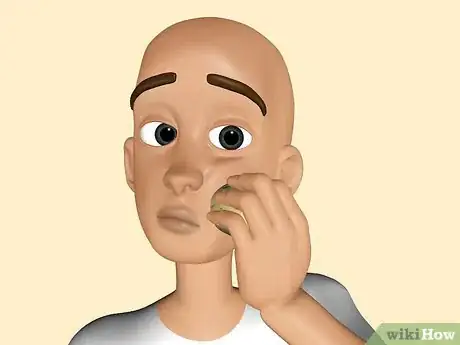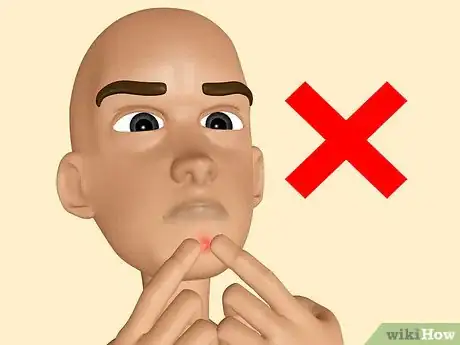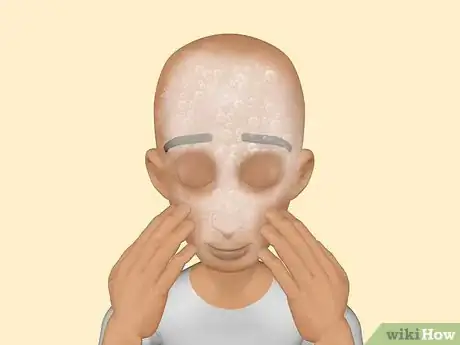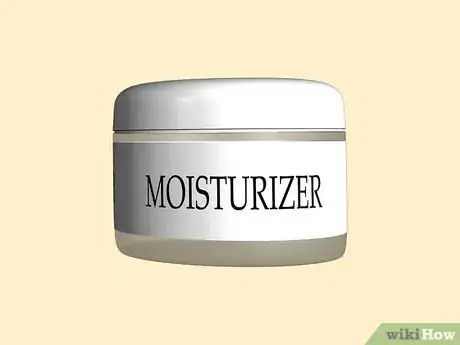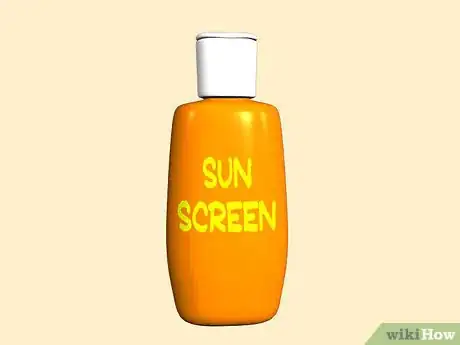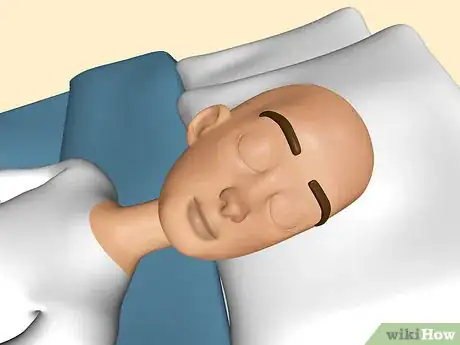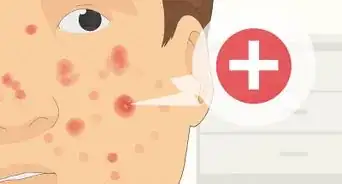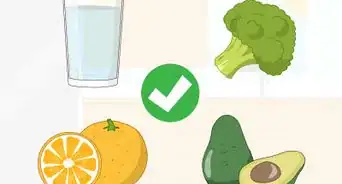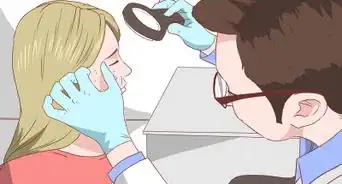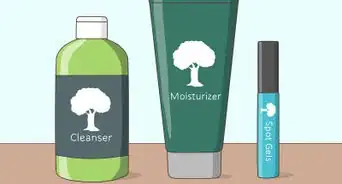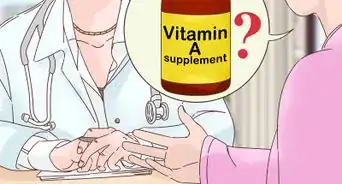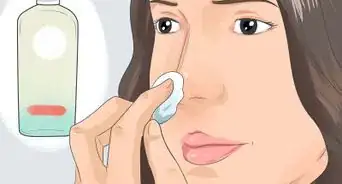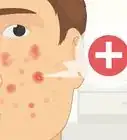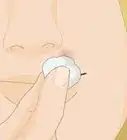This article was co-authored by Paul Friedman, MD. Paul Friedman, MD, is a Board-Certified Dermatologist, and the Director and Founder of the Dermatology & Laser Surgery Center in Houston, Texas. He has over 25 years of experience and specializes in Mohs micrographic surgery, dermatologic laser surgery, and cosmetic dermatology. Dr. Friedman is the current President of the American Society for Laser Medicine & Surgery and was named by Newsweek Magazine as one of the Best Dermatologists in America for Laser Treatments. His awards include the Husk Prize for his research in dermatologic surgery and the Young Investigator's Writing Competition Award of the American Society for Dermatologic Surgery. Dr. Friedman completed his dermatology residency at the New York University School of Medicine and received his medical degree with the highest honors from the University of Tennessee Health Science Center, College of Medicine.
There are 7 references cited in this article, which can be found at the bottom of the page.
This article has been viewed 1,096,824 times.
With acne affecting so many people, everyone has a method that works best for them, and sometimes that involves making your own treatment. If you're looking for something that'll work for you, try these recipes that have worked for others. Just keep in mind that these home remedies are not medically validated and may or may not work for you!
Steps
Home Remedies
-
1Use tea tree oil. Tea tree oil is a renowned anti-fungal and antibacterial herbal remedy, making it great for mild to moderate acne. In a study comparing the efficacy of tea tree oil and benzoyl peroxide, tea tree oil proved just as effective in fighting acne and reducing lesions. Whereas benzoyl peroxide works quicker than tea tree oil, tea tree oil produces less side effects in patients.[1]
-
2Create a face mask using a solution of one finely crushed aspirin tablet per tablespoon of cold cream. Spread over your face, wait 3-5 minutes, then rinse thoroughly.[2]Advertisement
-
3Use cold water. Fill an empty 1 gallon (3.8 L) jug with water and put it in the freezer for 2 hours. Pour the water into a bowl, then dip your face in the water for 25 seconds (5 dips for 5 seconds each). Repeat a few times every day.
-
4Make a strong acne solution by diluting 50% apple cider vinegar with 50% clean pure water. Once acne has improved, keep it at bay with a milder solution of 20% apple cider vinegar and 80% water. Do not use cheap vinegar. Apple cider vinegar is about $3-4 for a large bottle at any supermarket (more at health food stores). It will last months.
-
5Apply alum to the pimples. Potassium alum can usually be found in the spice aisle in some grocery stores. Although widely used as a natural deodorant and styptic (lessens bleeding after a cut), alum is a natural antiseptic and astringent, meaning that it shrinks skin tissue.
- Try to get a big block instead of in powder form. Powdered alum can be a little too abrasive. Gently wipe the alum over the affected areas, being careful not to irritate or inflame any pimples.
-
6Slice a raw potato and apply to skin. Slice a raw potato in half and apply onto acne. Raw potato can heal as well as act an anti-inflammatory. Again, wash the residue off your skin gently with water after using.
General Tips for Treating Acne
- Use a pH balanced cleanser as the optimal pH of 5.5 will restore the acid mantle and keep acne vulgaris growth at bay.[3]
-
1Try not to pick at or pop your pimples. You're using natural remedies for your acne treatment — that's great. Don't wipe away all your gains by popping your pimples. The short-term gratification might be overwhelming, but it's really not good in the long run.[4]
- Acne is a bacteria that lives in your pores. Popping the pimple gives the acne a chance to spread over the skin to other pores, infecting them.
- Popping pimples causes inflammation and may lead to scarring. So if you want your acne to be less visible, resist the urge to pop. Stop before you pop.
-
2Wash your face twice a day — no less. Washing your face is good: try to wash once in the morning and once at night.[5] But over-washing your face can cause further irritation and unnecessarily dry out the skin. Washing your face over and over again will not give you a better shot at treating your acne.
- Try to wash your face with a gentle cleanser. Some cleansers are even made with salicylic and glycolic acid, which help improve acne.[6]
-
3Moisturize. Your skin is an organ in your body, just like your kidney. Like your kidney, it needs to be fed with water and moisture to function properly. That's where moisturizing comes in. After every time you wash your face, moisturize.
- Different skin types call for different moisturizers. Cream-based moisturizers are probably more effective for dry skin, as they tend to be oily. Gel-based moisturizers are better for oily skin, as they disperse more evenly on the skin.
-
4Use sunscreen. Preferably the kind that doesn't irritate your skin, but still protects you from sun damage. Acne can be made worse by overexposure to the sun and by sun damage, making this an easy proposition. For better-looking skin, wear sunscreen.
-
5Get enough rest, exercise, and reduce stress in your life. These things may seem to have nothing to do with the quality of your skin, but they in fact have a very meaningful relationship with quality of skin.
- Doctors don't exactly know why, but stress worsens acne. When stress is produced in humans, the hormones that regulate sebum, an excess of which produces acne, stop working as well.[7] So find healthy ways to reduce stress in your life and see your skin get better!
- The more you sleep, the less stress you put your body through. You have about 15% more stress for every hour of sleep you lose per night.[8] And we just learned that stress causes acne. So get those ZZZs and see your acne improve.
- Exercise is a healthy way to give stress an outlet. Plain and simple, it's harder to be stressed when we're all tuckered out. So join a gym, play an intramural sport, or start running on your own.
Warnings
- Make sure you don't scratch or pop your pimples! You'll just end up with scars that won't make you look your very best!⧼thumbs_response⧽
- Drink lots of water to keep your body hydrated.⧼thumbs_response⧽
- Also, If you keep touching and prodding the skin this can make the area sore or even flaky and dry, So if anything, try to touch it as little as possible!⧼thumbs_response⧽
References
- ↑ https://www.ncbi.nlm.nih.gov/pubmed/2145499
- ↑ https://www.dailymail.co.uk/femail/article-2448598/Aspirin-face-mask-How-pain-killers-used-DIY-cure-blemishes.html
- ↑ https://www.medicaljournals.se/acta/download/10.2340/00015555-1531/
- ↑ https://www.aad.org/self-care
- ↑ Paul Friedman, MD. Board Certified Dermatologist, American Board of Dermatology. Expert Interview. 8 April 2020.
- ↑ Paul Friedman, MD. Board Certified Dermatologist, American Board of Dermatology. Expert Interview. 8 April 2020.
- ↑ http://www.webmd.com/skin-problems-and-treatments/acne/acne-care-11/stress-and-acne
- ↑ http://www.webmd.com/skin-problems-and-treatments/acne/acne-care-11/lifestyle
